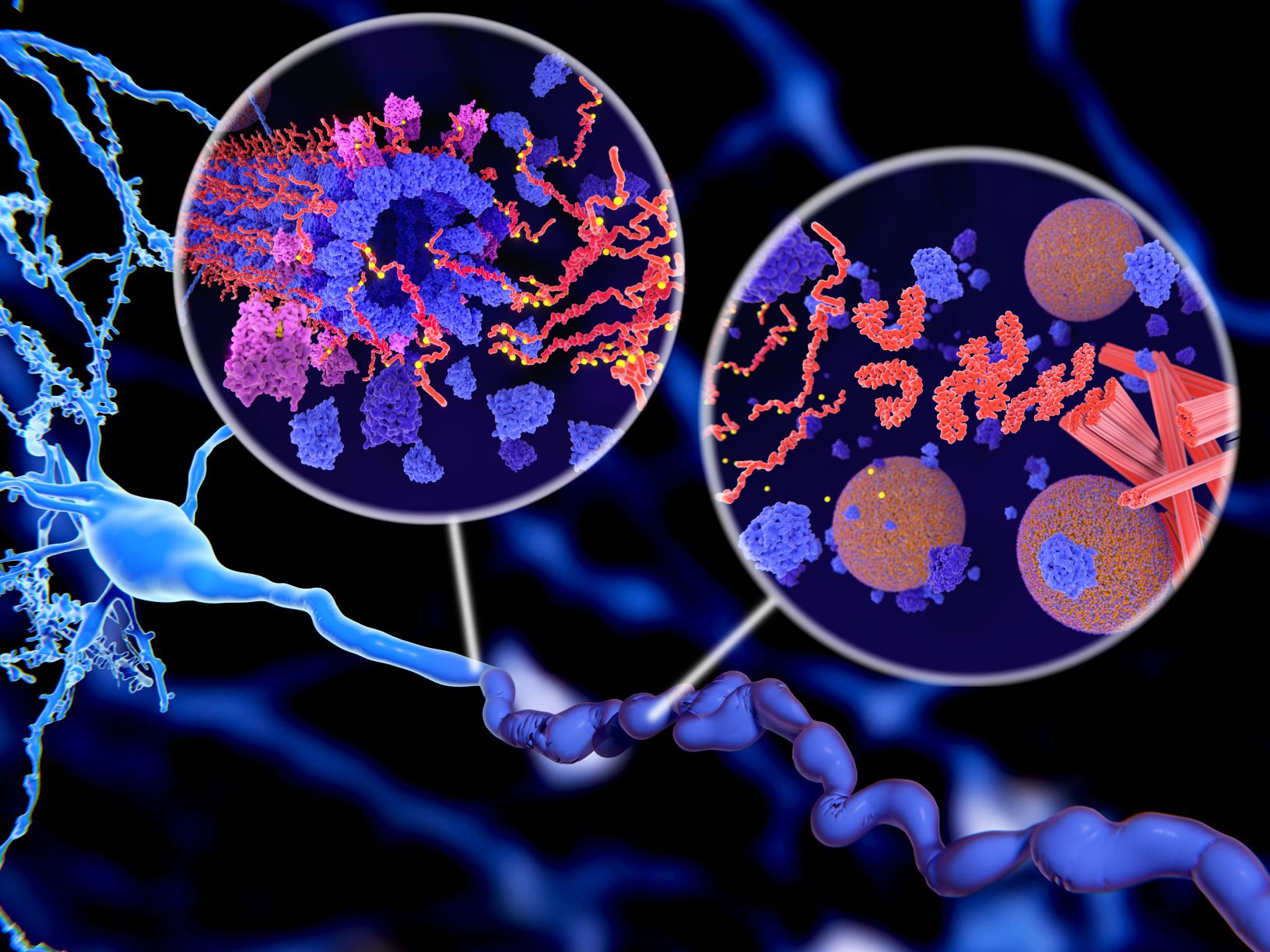Inside Labs
Inside Labs
New Study Reveals the Workings of the Greatest Genetic Risk Factor for Alzheimer’s Disease
Update 22.12.2022
Researchers shed light on how a variant form of a particular gene increases the risk of Alzheimer’s disease.
Apolipoprotein E (ApoE), a protein primarily involved in the metabolism of “lipids” in mammals, is known to be
associated with the onset of Alzheimer’s disease (AD). However, it is not clear
how exactly it contributes to AD. In a new study, researchers from Korea have
now detailed the role of ApoE4, a variant of the ApoE gene, in the development
of AD, providing a novel therapeutic target for preventing and treating AD.

Researchers from KNIH have provided novel
insights into the mechanism underlying the onset of Alzheimer’s disease (AD) in
people with the ApoE4 gene, a variant of the gene known to be a risk factor for
AD.
Image credit: Juan Gaertner from
Shutterstock.
Over 10 million people above the age of 65 are afflicted with dementia each
year worldwide. Among them, about 75% suffer from late-onset Alzheimer’s
disease (AD), a neurodegenerative disorder characterized by the abnormal
aggregation of the amyloid-beta and tau proteins that cause injury and death of
the brain cells.
Despite our best efforts, treating AD remains a difficult endeavor since
its cause is still not well understood. However, studies have shown that the
occurrence of AD is linked to the presence of a certain ApoE4 gene, a variant form
or “allele” of the ApoE gene, which is responsible for the expression of a
protein called apolipoprotein E (ApoE). The ApoE protein serves a multitude of
roles in the brain, ranging from lipid and glucose metabolism to neuronal signaling. While this is an illuminating
find, researchers are still in the dark about how ApoE4 actually leads to AD.
Against this backdrop, a team of researchers from South Korea, led by Dr. Chulman Jo from Korea National Institute of
Health, attempted to bridge the knowledge gap in a new study. This study was
supported by a fund (2019-NI-086-02) from Research of Korea Disease Control and
Prevention Agency, and was published
in the journal Scientific Reports.
The team explored how ApoE4 affected the process of “autophagy” in the
brains of those carrying the ApoE4 allele. “Autophagy
is an intracellular degradation pathway that removes abnormal proteins and
maintains protein homeostasis through protein quality control. It is,
therefore, important for preventing the occurrence and progression of
neurodegenerative diseases,” explains Dr. Jo.
They found that the protein FoxO3a, which controls the expression of genes
regulating autophagy, was expressed at significantly lower levels in the brains
of ApoE4 carriers compared to those of non-carriers. Furthermore, ApoE4
carriers also showed higher levels of FoxO3a phosphorylation, a process which
greatly reduced the activity of FoxO3a, than non-carriers.
“By increasing the expression of genes for
autophagy, FoxO3a exerts a protective effect by preventing protein toxicity due
to accumulation of misfolded or abnormal proteins. The repression of FoxO3a in
ApoE4 carriers would, therefore, lead to a greater accumulation of the
pathological tau protein in them, which is what we observed,” says Dr. Hee-Young Sohn, the first
author of this research paper.[A1]
In addition, the team used immunoblotting technique to detect the
expression levels of autophagy-related gene products, and found them to be much
lower in ApoE4 carriers than in non-carriers. This further supported the
hypothesis that the suppression of FoxO3a causes a dysfunction of autophagy.
With these insightful findings, the team is excited about the potential
implications of their study. Dr. Jo comments, “Our study is the first to identify a relationship between ApoE4 and
FoxO3a on autophagy regulation in the brain. The regulation of the ApoE4 -
FoxO3a axis could, therefore, provide a novel therapeutic target for treating
AD patients with ApoE4 allele, and, in turn, lead to the design of novel
therapies.”
We certainly hope his visions are realized soon!
Reference
|
Authors
Title of original paper
Journal |
Hee‑Young Sohn1,3, Seong‑Ik Kim2, Jee‑Yun Park1, Sung‑Hye Park2, Young Ho Koh1,
Joon Kim3 & Chulman Jo1
ApoE4
attenuates autophagy via FoxO3a repression in the brain
Scientific
Reports |
|
|
|
|
DOI
Affiliations |
https://doi.org/10.1038/s41598-021-97117-6
1Division of Brain Disease Research, Department
for Chronic Disease Convergence Research, Korea National Institute
of Health, 187 Osongsaengmyeong2‑ro, Osong‑eup, Cheongju‑si, Chungcheongbuk‑do 28159, Republic of
Korea.
2Department of Pathology, Seoul
National University College of Medicine, Seoul 03080, Republic of
Korea.
3Laboratory of Biochemistry,
Division of Life Sciences, Korea University, Seoul 02841, Republic of Korea. |
About National Institute of Health in Korea
The Korea National Institute of Health (KNIH), one
of the major operating components of the Ministry of Health and Welfare, leads
the nation’s medical research. Over the past seven decades, the KNIH has made
unwavering efforts to enhance the public’s health and innovate biomedical
research. The KNIH seeks to eradicate diseases and make people healthier. The
KNIH establishes a scientific basis and evidence underlying health policy as
well as provides national research infrastructures. We also promote public
health research. To this end, we make efforts to enrich a health research
environment by granting funds to research projects and keeping our resources,
data, and facilities more open and accessible to researchers.
Website:
http://www.nih.go.kr/NIH_ENG/
About Dr. Chulman Jo
Dr. Chulman Jo is a senior staff scientist in the Division of Brain Disease Research at the Korea National Institute of Health. His group studies the molecular risk factors for tau pathology in Alzheimer’s disease. From 2010 to 2012, he received his postdoctoral training at Gail Johnson’s lab at Rochester University Medical Center, New York, USA. He has published 40 papers so far with over 900 citations to his credit.
[A1]We added the full name of
the first author here since he is not introduced in the write-up before. Please
check if this is okay.

